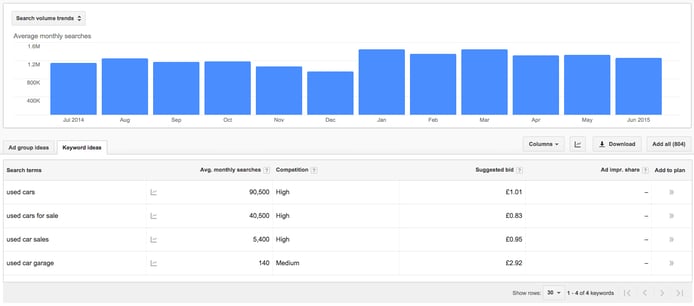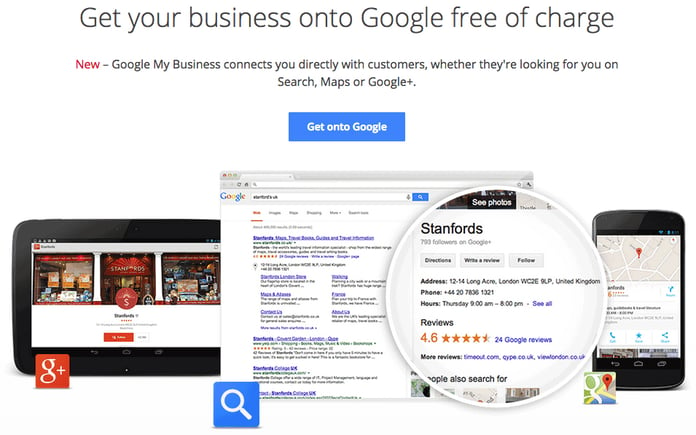3 min read
Honchō Scoops Up Two UK Search Awards!
It’s official, we've added not one, but two shiny trophies to our awards cabinet! We’re over the moon to share that we’ve triumphed at the UK Search...
So you’ve got the design right, the content is written and your shiny new website is ready for launch. The real challenge however, is just beginning. How do you get visitors to your website and turn them into customers?
Search Marketing is vital for any business trying to succeed online. Potential customers are looking every day on Search Engines like Google and Bing for the products and services that you offer. Getting your website in front of this audience will undoubtedly lead to new customers for your business.
So where do you start? Well to help I’ve listed some basic SEO fundamentals that you should consider as part of your SEO strategy along with some free tools that are available to everyone.
The first step in any SEO campaign is to identify your target audience through keyword research. Identifying which search terms potential customers are entering into Search Engines to locate a website or business like yours is vital information that your entire SEO strategy will built around.

Search Engine Accessibility is very important. Once the Search Engine spider finds your website you need them to index all the pages and have no problems navigating between pages.
Remember, Search Engine spiders are trying to establish how relevant your website is to every keyword and phrase on your site, stand alone pages that link nowhere are less relevant than a page that links to several pages of related content.
SEO encompasses many factors and techniques to achieve top rankings. The key factor to remember is that it’s the Search Engine’s job to return the most relevant results to a particular search query and they do this through an algorithm. Some of the most basic on-page SEO factors include:
Search Engines will revisit your site from time to time to see if your content has changed. If the search engine keeps seeing the same content the frequency that it will visit your site will reduce. It’s important to consistently add relevant content to your website and link from existing pages, this will help increase your relevance each time the Search Engine Spiders index your site.
When optimising a new website with no history or just starting SEO on a site it’s best to focus on long tail keywords and phrases rather than competitive generic keywords.
Long tail keywords are combinations of various phrases (often consisting of 3+ keywords within the search term). Individually these phrases are unlikely to drive a large level of volume but collectively they can provide a significant amount of traffic.
Websites that rank for generic keywords and phrases will have a good history and trusted by the Search Engines. Targeting a small number of generic keywords at first alongside long tail keywords and phrases within your sites content will allow your site to gain some of that trust and build up history from Search Engines.
Link building continues to play a pivotal part in how Search Engines rank a website. Not only will they help rank but your first links are possibly the most important as they will help the Search Engines find your website.
The best link building strategy of course is to create content that will generate links to your site of their own merit which in turn will help build your brand’s credibility and authority within your industry.
If you own a small business your primary target customers should be those on your doorstep. Optimising your site to rank for local searches will provide a good platform for building your business online.

Google Local listings are now frequently seen on Page 1 for local search terms and this presents a good opportunity to attract targeted traffic in addition to displaying details like your phone number, address and special offers.
For more information read this blog post on setting up a Google Business Listing
It’s important that SEO remains an ongoing and integral part of your online marketing strategy. Therefore it’s important that a dedicated team member or an SEO agency (I’ve heard iThinkMedia are pretty good!) are managing this channel.
Putting lots of content on your site and just leaving it there forever will never drive your site forward and in the unlikely event that this approach should achieve page 1 rankings they will gradually (or even swiftly) slide down the rankings as your competitors improve their sites and content whilst your site stands still.
As I mentioned at the beginning of this post these are just some basic SEO fundamentals and certainly shouldn’t be viewed as a comprehensive check list but I hope you find them useful.

3 min read
It’s official, we've added not one, but two shiny trophies to our awards cabinet! We’re over the moon to share that we’ve triumphed at the UK Search...

5 min read
Understand ecommerce attribution models which attribution models can maximise your marketing efforts and ROI.

3 min read
Explore how social commerce is changing the way we shop online, blending social interactions with digital commerce for a seamless buying experience.